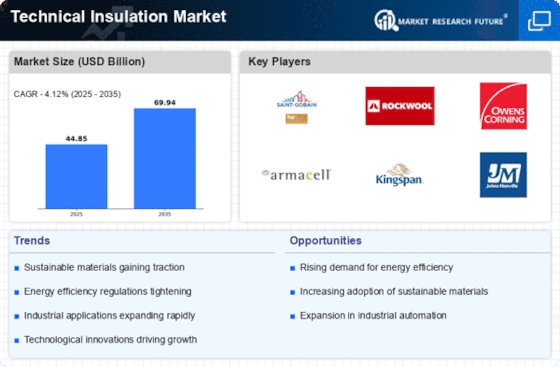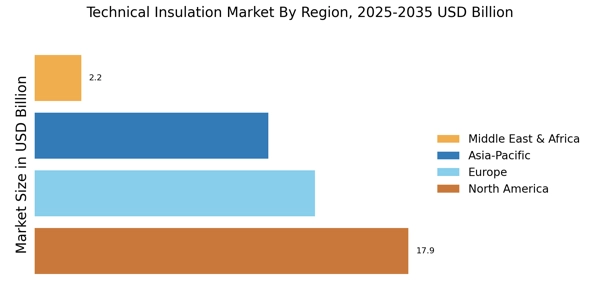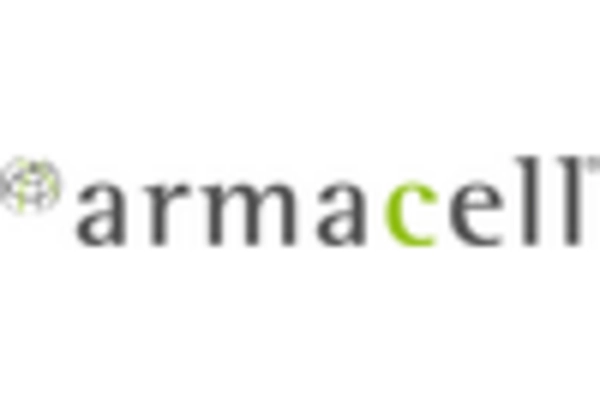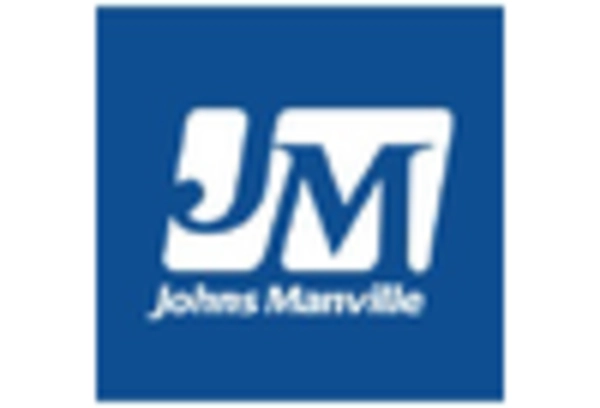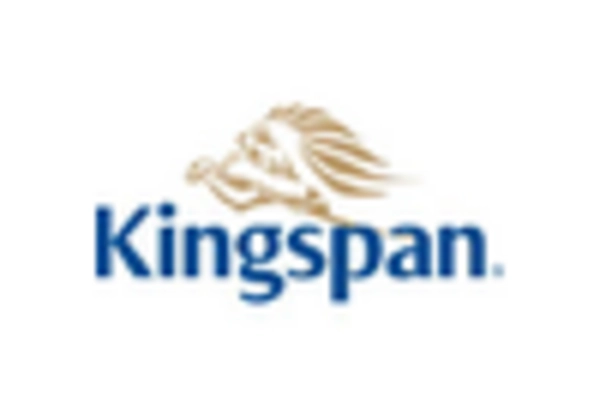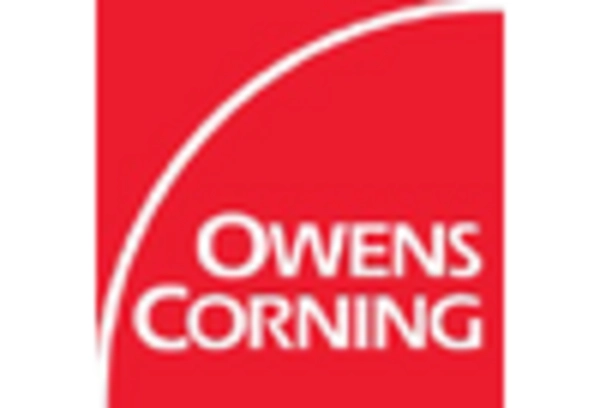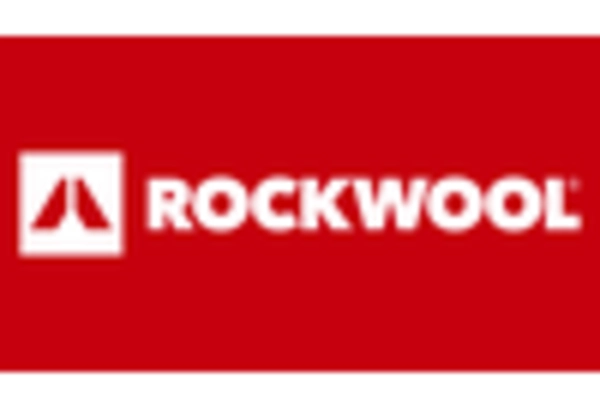Rising Energy Costs
The Technical Insulation Market is experiencing a notable surge in demand due to rising energy costs. As energy prices continue to escalate, industries are increasingly seeking solutions to enhance energy efficiency. Insulation materials play a crucial role in minimizing energy loss, thereby reducing operational costs. For instance, the adoption of advanced insulation technologies can lead to energy savings of up to 30% in industrial applications. This trend is particularly evident in sectors such as manufacturing and construction, where energy consumption is substantial. Consequently, the Technical Insulation Market is poised for growth as businesses prioritize cost-effective insulation solutions to mitigate the impact of rising energy expenses.
Environmental Regulations
The Technical Insulation Market is increasingly shaped by stringent environmental regulations aimed at reducing carbon emissions and promoting energy efficiency. Governments worldwide are implementing policies that mandate the use of energy-efficient insulation materials in construction and industrial applications. For example, regulations such as the Energy Efficiency Directive in various regions require compliance with specific insulation standards. This regulatory landscape is compelling manufacturers to innovate and produce insulation products that meet these requirements. As a result, the Technical Insulation Market is likely to witness a shift towards more sustainable and compliant insulation solutions, fostering growth in this sector.
Technological Innovations
Technological advancements are reshaping the Technical Insulation Market, driving the development of innovative insulation materials and solutions. Recent innovations include the introduction of aerogel and vacuum insulation panels, which offer superior thermal performance compared to traditional materials. These advancements not only enhance energy efficiency but also contribute to sustainability efforts by reducing material usage. The market for these advanced insulation products is expected to grow, with estimates suggesting a potential increase of 15% in market share over the next five years. As industries seek to adopt cutting-edge technologies, the Technical Insulation Market stands to benefit from the growing emphasis on high-performance insulation solutions.
Increased Construction Activities
The Technical Insulation Market is significantly influenced by the upsurge in construction activities across various sectors. With urbanization and infrastructure development on the rise, there is a growing need for effective insulation solutions in residential, commercial, and industrial buildings. According to recent data, the construction sector is projected to grow at a compound annual growth rate of approximately 5% over the next few years. This growth directly correlates with the demand for technical insulation products, which are essential for energy efficiency and regulatory compliance. As builders and developers increasingly recognize the importance of insulation in reducing energy consumption, the Technical Insulation Market is likely to expand in tandem with construction trends.
Growing Awareness of Sustainability
The Technical Insulation Market is benefiting from a growing awareness of sustainability among consumers and businesses alike. As environmental concerns become more pronounced, there is an increasing demand for insulation materials that not only provide thermal efficiency but also have a reduced environmental impact. This trend is reflected in the rising popularity of eco-friendly insulation options, such as recycled materials and natural fibers. Market data indicates that the demand for sustainable insulation products is expected to grow by approximately 20% in the coming years. Consequently, the Technical Insulation Market is likely to expand as manufacturers respond to this shift in consumer preferences, focusing on sustainable and environmentally responsible insulation solutions.


